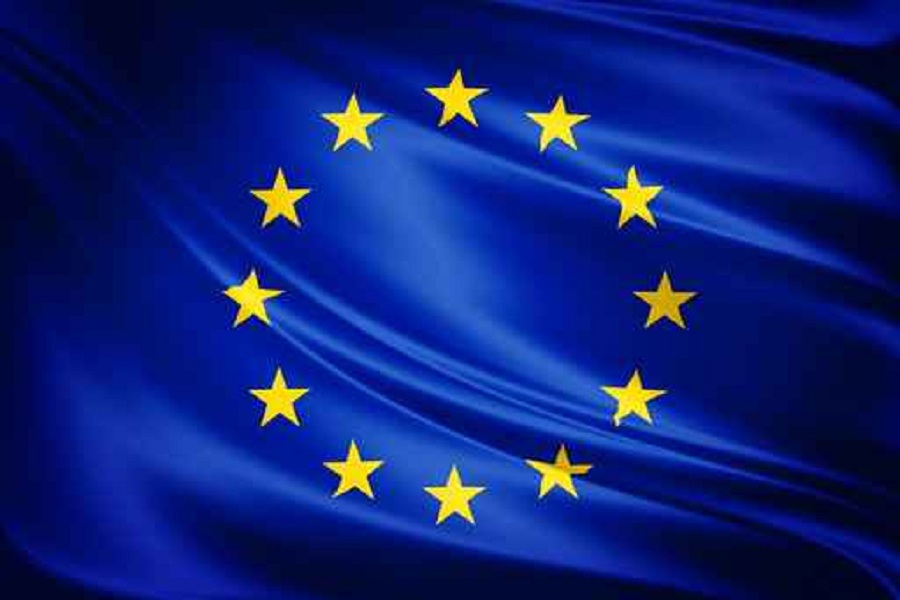EU finally agrees on General Data Protection Regulations
The wording of the document has been finalised and is set to come into force in 2018


Sign up today and you will receive a free copy of our Future Focus 2025 report - the leading guidance on AI, cybersecurity and other IT challenges as per 700+ senior executives
You are now subscribed
Your newsletter sign-up was successful
EU officials have finally agreed on the wording of the new General Data Protection Regulations (GDPR) following three years of negotiations and draft documents.
Although the changes, which aim to set some kind of data protection consistency around the whole of Europe, haven't been formally agreed upon yet, approval will be top of the EU Parliament's agenda when they meet later in the month.
At this point, it will get the go ahead to become law from 2018 in all 28 member states, replacing often misaligned laws around the continent.
Some of the most notable changes in the GDPR proposals include more rigorous regulations for getting consent to collect data, increasing the age of consent from 13 years to 16 years old, removing information from company servers when Right to Be Forgotten requests are granted, requiring companies to tell EU authorities if a data breach occurs within 72 hours of it happening and establishing a single national office where complaints about data protection can be made.
The regulations will also include provisions for fining companies up to four per cent of their global revenues if they do not comply, which supporters believe will motivate organisations to reassess their data protection policies.
"The most critical change brought about by the GDPR is that jurisdiction is not a physical or geographical barrier jurisdiction will be measured digitally, meaning that companies outside of the EU will be affected by these new regulations by virtue of collecting data that belongs to an EU citizen," attorney Joseph D. McClendon told the National Law Review.
"With fines for non-compliance being set at 4 per cent of a company's global revenue, the financial impact to companies like Google, Facebook, Apple, and Microsoft for non-compliance can potentially result in billions of dollars in fines alone."
Sign up today and you will receive a free copy of our Future Focus 2025 report - the leading guidance on AI, cybersecurity and other IT challenges as per 700+ senior executives

Clare is the founder of Blue Cactus Digital, a digital marketing company that helps ethical and sustainability-focused businesses grow their customer base.
Prior to becoming a marketer, Clare was a journalist, working at a range of mobile device-focused outlets including Know Your Mobile before moving into freelance life.
As a freelance writer, she drew on her expertise in mobility to write features and guides for ITPro, as well as regularly writing news stories on a wide range of topics.
-
 Anthropic promises ‘Opus-level’ reasoning with new Claude Sonnet 4.6 model
Anthropic promises ‘Opus-level’ reasoning with new Claude Sonnet 4.6 modelNews The latest addition to the Claude family is explicitly intended to power AI agents, with pricing and capabilities designed to attract enterprise attention
-
 Researchers call on password managers to beef up defenses
Researchers call on password managers to beef up defensesNews Analysts at ETH Zurich called for cryptographic standard improvements after a host of password managers were found lacking
-
 Cyber pros say the buck stops with the board when it comes to security failings
Cyber pros say the buck stops with the board when it comes to security failingsNews Fines, sanctions, and even prosecution are all on the table when it comes to cyber failings, practitioners believe
-
 Top data security trends
Top data security trendsWhitepaper Must-have tools for your data security toolkit
-
 Why bolstering your security capabilities is critical ahead of NIS2
Why bolstering your security capabilities is critical ahead of NIS2NIS2 regulations will bolster cyber resilience in key industries as well as improving multi-agency responses to data breaches
-
 SEC data breach rules branded “worryingly vague” by industry body
SEC data breach rules branded “worryingly vague” by industry bodyNews The new rules announced last week leave many questions unanswered, according to security industry experts
-
 Crackdown on crypto needed to curb cyber crime, says expert
Crackdown on crypto needed to curb cyber crime, says expertNews Threat actors would struggle to generate money without the anonymity provided by unregulated digital tokens, but such a move would require worldwide buy-in
-
 The gratitude gap
The gratitude gapWhitepaper 2023 State of Recognition
-
 UK gov invites experts to contribute to its overhauled AI regulatory approach
UK gov invites experts to contribute to its overhauled AI regulatory approachNews The new approach will not adopt the EU's centralised model and sits alongside the National AI Strategy and Data Protection and Digital Information Bill
-
 UK government opts against regulation for cyber security standards
UK government opts against regulation for cyber security standardsNews UK Cyber Security Council will move ahead with its planned chartered standards, with the government to monitor its adoption